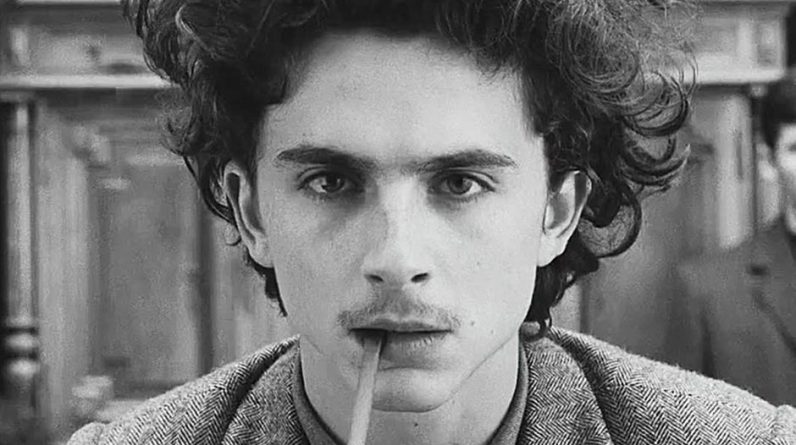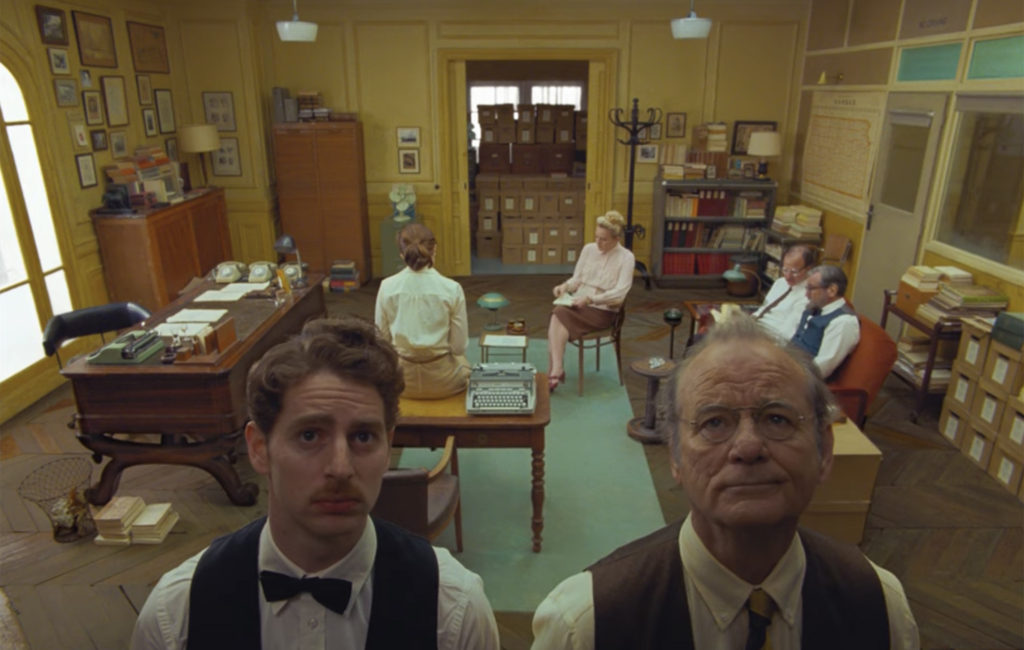The dreary rhythm of November is hardly an environment for creativity but as I walked out of the 1:20 pm showing of The French Dispatch, my mind buzzed with inspiration.
When the reviews for the film first rolled out, I was horrified to learn that my favorite director had created something worthy of only “generally favorable reviews.” Wes Anderson has been an idol of mine since middle school, known for his pastel color palettes and star-studded casts. Each of his films has a creative, innovative storyline, often following the miraculous adventure of characters ranging from school-age children to a family of foxes.
The French Dispatch, a newspaper edited by Arthur Howitzer Jr., publishes one final farewell issue after the death of its beloved editor. The film explores three articles from past editions of the paper as they are republished for the farewell issue.

The first article, titled The Concrete Masterpiece, details the career of painter Moses Rosenthaler as he creates his masterpiece from prison. The segment, narrated by J.K.L. Berenson (played by the iconic Tilda Swinton) is both hilarious and heartbreaking.
The second article, titled Revisions to a Manifesto, features Frances McDormand as reporter Lucinda Krementz, covering a student protest. Giving a marvelous performance, Timothée Chalemet—America’s favorite white boy—masterfully wields the spotlight. The romantically shot segment plays with themes of love and political conflict, begging the question, “Can neutrality coexist with affection?”
The final article, titled The Private Dining Room of the Police Commissioner, tells the story of a food reporter invited to dinner with the police commissioner. When the commissioner’s son is kidnapped by criminals (played by Saiorse Ronan, among others), a shootout, poisoned dinner, and eventual police chase ensue. The story was my least favorite of the three, but the poignant ending was beautifully written.

The triptych is classically Wes Anderson. Shifting from black and white to colorfully lit, the shots are often symmetrical, usually dynamic, and always masterful. Even the soundtrack feels stylized. The stories are grounded in reality but are punctuated by an otherworldly flair, transporting the viewer to a sensational, romantic land of wild-haired boys and abstract nude portraits.
Although the film may be an occasionally difficult watch for the casual viewer, it’s the perfect remedy for creative burnout and general boredom brought on by seasonal blues. One does not need to be familiar with Wes Anderson’s previous work to enjoy this perfectly strange tale. An ode to journalism, unexpected love, and of course, French culture, The French Dispatch has solidified itself as a welcome addition to Wes Anderson’s body of work.
